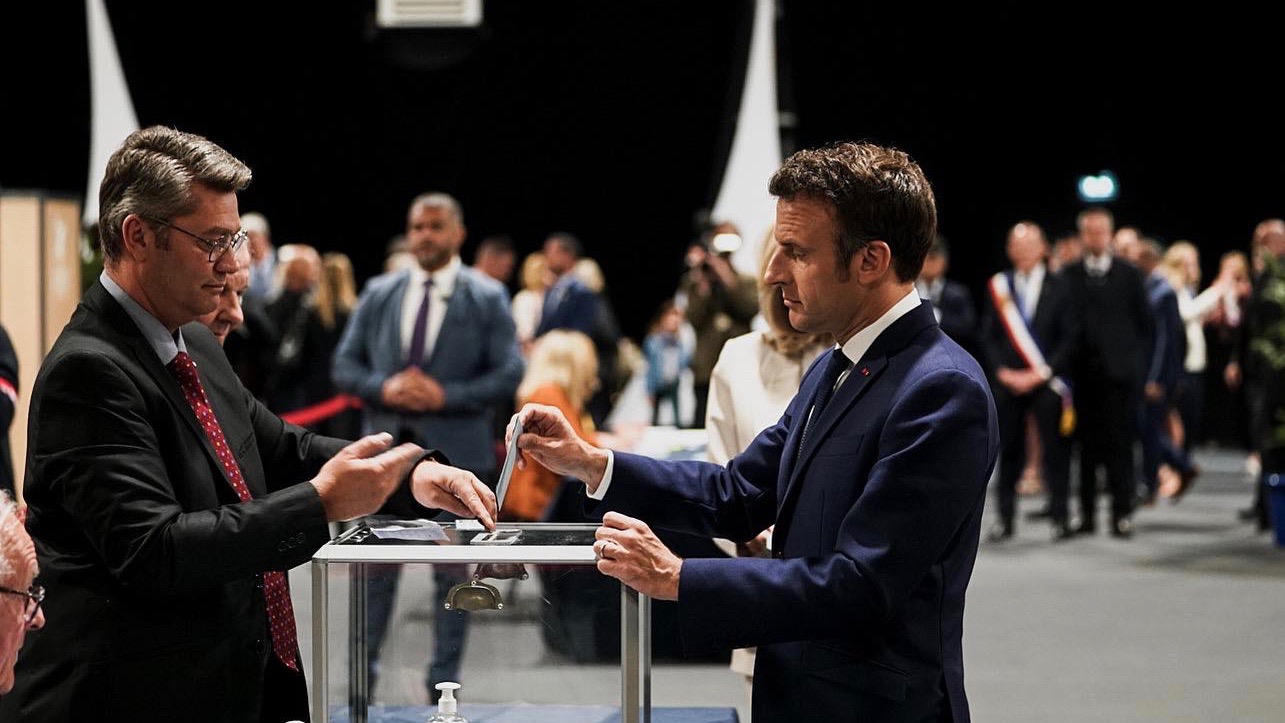In the second round of the French presidential elections held on April 24, incumbent president Emmanuel Macron from La Republique En Marche (LREM) secured a comprehensive victory by securing 58.5% votes against Marine Le Pen from the far-right National Rally (RN) who managed to win 41.5% votes. The consolidation of the liberal sections and a vigorous campaign by anti-fascist sections against the rise of the far-right is believed to have benefited Macron as indicated in the margin of difference between the vote shares in the second round as opposed to the first round where the difference between the candidates was only around 4.5%. The turnout for the second round was 71.99%, which was lower than the 73.69% turnout in the first round.
While a far-right government in France has been averted, working class and leftist sections hold no illusions about Macron 2.0. According to an article in L’Humanite, “the program of this second mandate is a continuation of a policy initiated during the first five-year term of Macron, with the same objective to fulfill the desires of big business.” As predicted by several observers, the disunity among the left-wing forces and factionalism within the far-right camp helped Macron to survive the first round. The looming far-right threat helped him win in the second round. Macron is otherwise quite unpopular among the working class and middle income households across France for his austerity-driven neoliberal policies.
In its statement on April 12, the General Confederation of Labor (CGT) warned the French working class about the looming far-right threat, stating that “It is our responsibility to say that the policy of social regression, in permanent support of the employers, carried out during this five-year term like those that preceded it, bears in conscience the responsibility for the rise of the extreme right.”
On April 24, leader of the leftist La France Insoumise (LFI) and a popular candidate in the first round of presidential polls, Jean-Luc Melenchon, urged his followers and the masses to gear up for the upcoming parliamentary elections to the 577-seat French National Assembly scheduled for June 12 and 19, where they can give a formidable challenge to the anti-people policies of the Macron-led government.
Following the declaration of the election results, Fabien Roussel, leader of the French Communist Party (PCF), said, “many French voted to beat the extreme right, many French don’t want Emmanuel Macron’s retirement reform. We avoided the worst, from now on, let’s build the largest left coalition in view of the upcoming parliamentary elections.”





